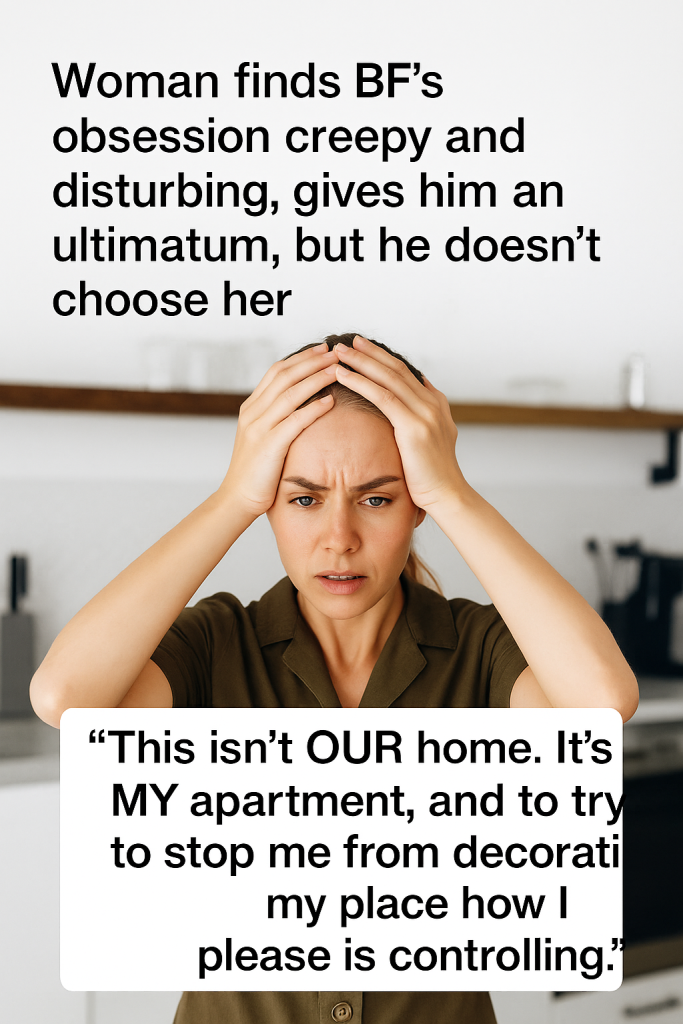A seemingly ordinary relationship took a troubling turn when a woman grew increasingly alarmed by her boyfriend’s unsettling fixation on her apartment—leading her to confront him with a hard ultimatum. The boyfriend’s refusal to prioritize their relationship over his obsession ultimately resulted in a painful breakup, highlighting the fine line between affection and control.
The story, which has been circulating widely on social media, began when the woman noticed her boyfriend’s behavior becoming “creepy and disturbing” in relation to her living space. What started as frequent visits and comments soon escalated into an unhealthy preoccupation with the apartment itself, rather than just the emotional connection between them.
According to the woman’s account, the crux of the conflict centered on ownership and respect for boundaries. “This isn’t OUR home. It’s MY apartment,” she explained. Her boyfriend, however, reportedly treated the property as if he had equal claim, leading to ongoing disputes about his presence and behavior within the space.
The woman’s frustration reached a boiling point when she presented an ultimatum: either he respect her boundaries and the nature of the apartment as her personal space, or their relationship would end. Rather than choosing compromise or understanding, the boyfriend refused to relinquish his obsession or acknowledge her perspective, choosing instead to walk away from the relationship.
Experts in relationship dynamics note that obsession over a partner’s personal space is a red flag for controlling behavior. Psychologists emphasize that healthy relationships require mutual respect, especially regarding individual autonomy and personal property. In this case, the boyfriend’s inability to separate his fixation from the woman’s personal boundaries signaled deeper issues that were unlikely to resolve without intervention.
The incident has since sparked widespread discussion on social media, with many users expressing solidarity with the woman for taking a strong stance against behavior they described as manipulative and invasive. Others cautioned that obsession over a partner’s home can escalate into forms of emotional abuse, underscoring the importance of maintaining clear boundaries in relationships.
While the details remain private, this story serves as a potent reminder: relationships thrive on balance, respect, and trust—not control or obsessive behavior. The woman’s decision to give an ultimatum, though difficult, highlights the courage required to protect one’s mental health and personal space.
As toxic relationship patterns gain more attention, stories like this underline the necessity for open communication and early recognition of red flags. Respecting each other’s autonomy—even within shared contexts—is a cornerstone of any healthy partnership, and sometimes walking away is the healthiest choice.



